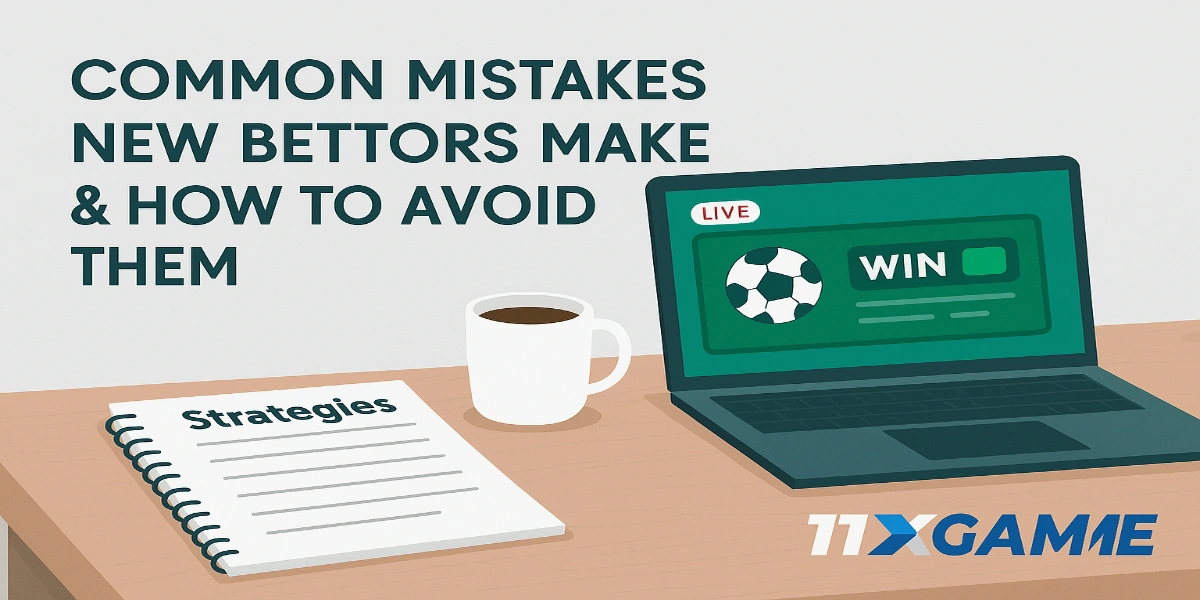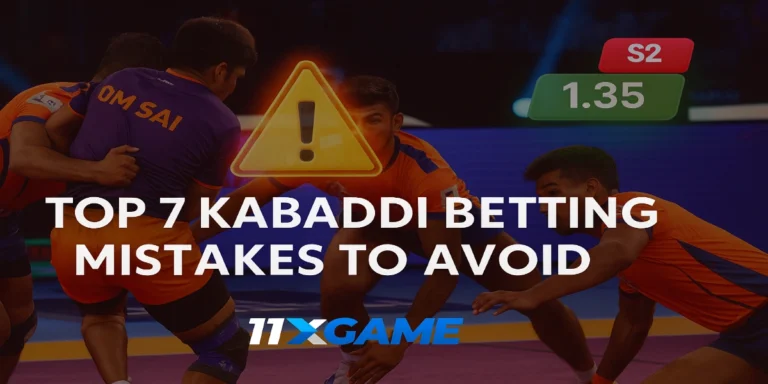Common Mistakes New Bettors Make and How to Avoid Them
Introduction
Common mistakes new bettors make can cost them more than just money—they can lead to stress, addiction, and frustration. Sports betting has grown massively in recent years, with millions of people placing bets on football, cricket, basketball, and other sports every day. For beginners, the excitement of winning big often overshadows the importance of discipline and strategy.
Unfortunately, this excitement also leads to errors that many new bettors repeat. These mistakes often come from misinformation, overconfidence, or simply lack of knowledge. If you are starting your betting journey, understanding these mistakes is crucial to protect your bankroll and your mental well-being.
In this detailed guide, we’ll look at the biggest mistakes new bettors make, why they happen, and most importantly, how to avoid them so you can enjoy a safer and more informed betting experience.
1. Betting Without Research
One of the most Common mistakes new bettors make is betting without doing proper research. Many new bettors assume that betting is just about guessing the winner, following their favorite team, or listening to a friend’s advice.
Why It’s a Problem–
- Relying on gut feelings instead of facts leads to poor decisions.
- You ignore key factors like team form, injuries, and weather conditions.
- Emotional attachment to teams clouds judgment.
Sports outcomes are influenced by multiple factors, and without research, you’re leaving everything to chance.
How to Avoid It
✔ Spend time studying team stats, player performance, and head-to-head records.
✔ Read expert analysis and match previews from credible sources.
✔ Don’t place bets based on rumors or social media hype.
✔ Understand how odds work and what they imply about probabilities.
2. Chasing Losses
One of the biggest emotional traps in betting is chasing losses. After a loss, many beginners feel the urge to immediately place another bet to recover the lost amount. This is one of the fastest ways to go broke.
Why It’s a Problem
- You abandon logic and strategy when emotions take over.
- Bigger bets to “recover quickly” often lead to bigger losses.
- Creates a cycle that leads to addiction and financial stress.
Example:
Imagine losing ₹1,000 on a match. Instead of stopping, you place ₹2,000 on the next game to win back the loss. If you lose again, you double the bet again. This snowball effect is the root cause of massive financial losses in betting.
How to Avoid It
✔ Accept that losses are part of betting—no one wins all the time.
✔ Set a daily or weekly loss limit and stick to it.
✔ Take breaks after a loss to cool down and regain control.
✔ Never bet more than you can afford to lose.
3. Poor Bankroll Management
New bettors often make the mistake of betting without setting a budget or bankroll plan. This is extremely dangerous because it leads to overspending without realizing it.
Why It’s a Problem
- Betting without limits can lead to financial problems.
- Many beginners bet their entire balance on a single game.
- You cannot sustain betting for the long term without a plan.
How to Avoid It
✔ Decide your monthly or weekly betting budget and stick to it.
✔ Use the 1–5% rule: Bet only 1–5% of your total bankroll per wager.
✔ Avoid increasing bet size after a loss.
✔ Keep personal expenses and betting funds separate.
“Websites like 11xBet exist for safe sports betting enthusiasts, but betting involves financial risk. Always gamble responsibly and check local laws before participating.”
4. Believing in Betting Myths
Betting myths are everywhere. People believe things like “home teams always win” or “favorites never lose.” These myths sound convincing but are far from the truth.
Common Myths New Bettors Believe
- Myth: Home advantage guarantees victory.
- Myth: The more games you bet on, the better your chances.
- Myth: Betting big favorites is always safe.
- Myth: A lucky streak will continue forever.
Why It’s a Problem
- Myths replace logic with superstition.
- You ignore real stats, trends, and probabilities.
- Creates unrealistic expectations, leading to losses.

How to Avoid It
✔ Rely on statistics, not assumptions.
✔ Read verified information instead of listening to “expert” rumors.
✔ Understand probability and how odds represent risk.
5. Ignoring Responsible Gambling Practices
Many beginners treat betting as a quick way to make money and ignore responsible gambling principles. This attitude leads to addiction, debt, and stress.
Why It’s a Problem
- Gambling without limits can affect personal life and mental health.
- It can lead to financial disaster if unchecked.
- Legal issues can arise if betting is not regulated in your region.
How to Avoid It
✔ Set strict time and money limits before betting.
✔ Never borrow money to gamble.
✔ Take regular breaks to avoid compulsive behavior.
✔ If you feel gambling is taking over your life, seek help immediately.
Other Common Mistakes to Watch Out For
✔ Overconfidence: Thinking you can always beat the bookies.
✔ Following random tipsters: Many fake tipsters promise guaranteed wins.
✔ Not understanding odds: Misinterpreting odds can lead to poor bets.
✔ Relying on luck alone: Betting is not a lottery; strategy matters.
How to Avoid These Mistakes – Quick Checklist
✔ Do thorough research before every bet.
✔ Stick to your bankroll management plan.
✔ Avoid emotional decisions after losses.
✔ Don’t believe in myths or “sure-win” tips.
✔ Always practice responsible gambling.
Conclusion
The common mistakes new bettors make are easy to avoid if you approach betting with knowledge and discipline. Betting should never be about chasing money or luck—it should be about making informed decisions and staying within limits.
Remember: Knowledge, strategy, and responsible gambling are your best tools for a safe betting experience.
FAQs– Related to Common mistakes new bettors make
Q1: What is the most common mistake new bettors make?
Betting without research and proper bankroll management is the biggest mistake.
Q2: Is chasing losses a bad idea?
Yes. Chasing losses leads to emotional betting and financial disaster.
Q3: How do I avoid addiction when betting?
Set strict limits on time and money, and seek help if gambling affects your personal life.
Q4: Can betting myths really cause losses?
Yes, because they lead you to make decisions based on false beliefs rather than facts.
“Thanks for reading! For more educational guides, responsible betting tips, and honest insights about the industry, visit 11xGame and make informed choices every time you play.”




